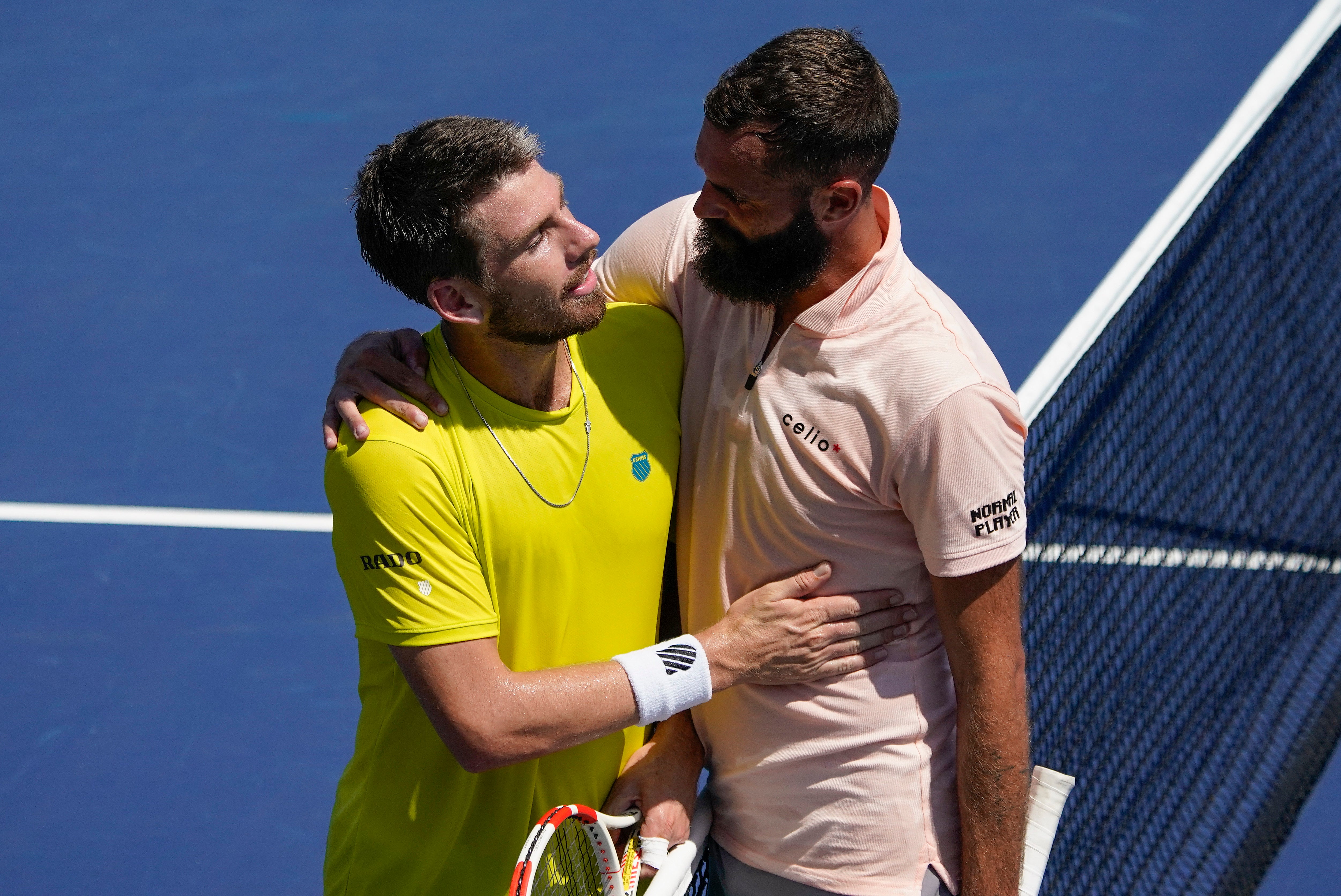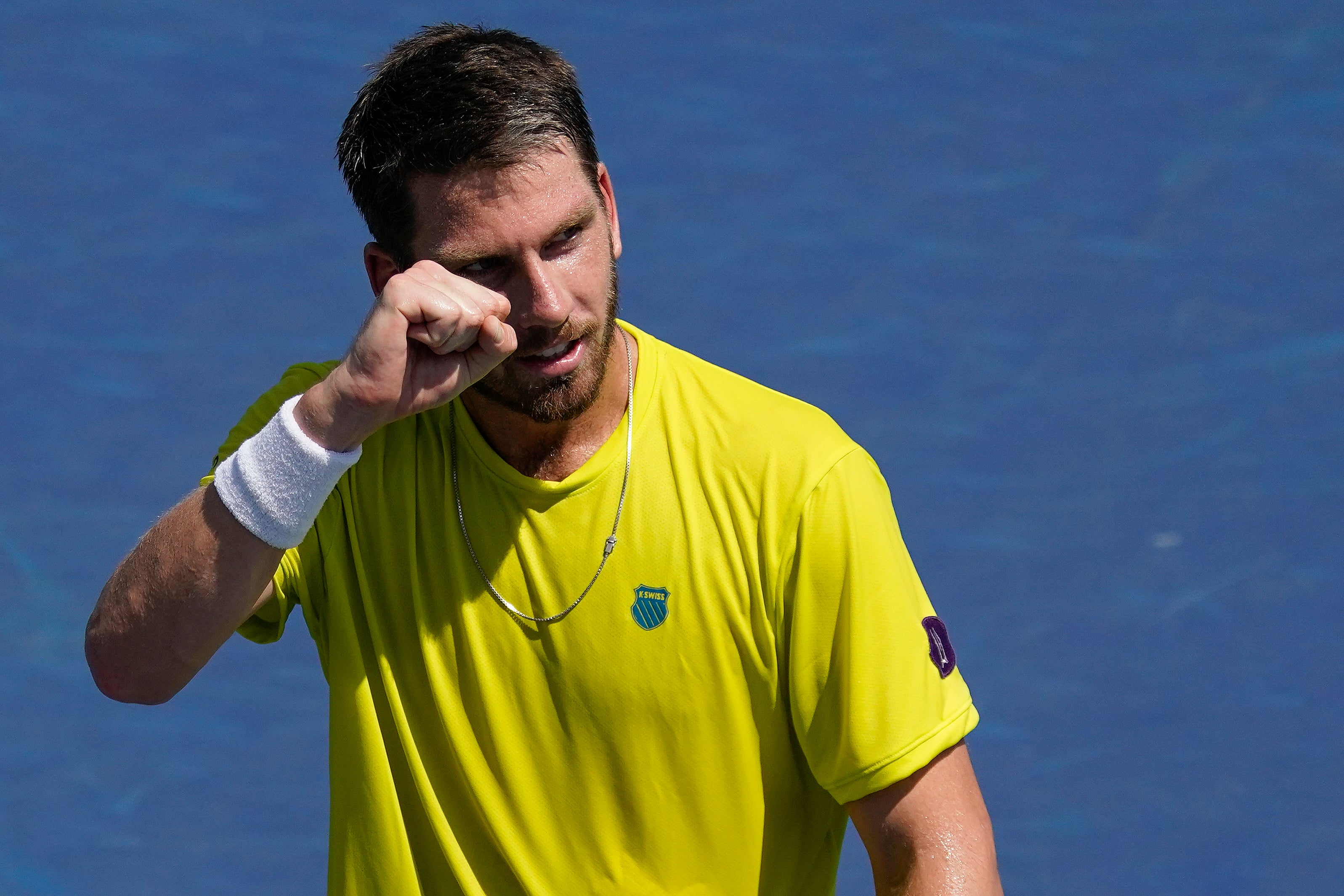Benoit Paire could hang up racket after Cameron Norrie defeat
Paire has been open about his mental struggles on court.

Your support helps us to tell the story
From reproductive rights to climate change to Big Tech, The Independent is on the ground when the story is developing. Whether it's investigating the financials of Elon Musk's pro-Trump PAC or producing our latest documentary, 'The A Word', which shines a light on the American women fighting for reproductive rights, we know how important it is to parse out the facts from the messaging.
At such a critical moment in US history, we need reporters on the ground. Your donation allows us to keep sending journalists to speak to both sides of the story.
The Independent is trusted by Americans across the entire political spectrum. And unlike many other quality news outlets, we choose not to lock Americans out of our reporting and analysis with paywalls. We believe quality journalism should be available to everyone, paid for by those who can afford it.
Your support makes all the difference.Troubled Benoit Paire admitted his defeat to Cameron Norrie at the US Open could have been the last match of his career.
The mercurial Frenchman has been criticised many times for his attitude on court and he barely seemed to try in the first and third sets during a 6-0 7-6 (1) 6-0 defeat by Norrie at Flushing Meadows on Tuesday.
He had packed his bag ready to leave the court prior to coming out to serve at 0-5 in the third and won just 17 points combined across the two love sets.
Paire has been open about his mental struggles on the court and, speaking to L’Equipe, he revealed he is considering not returning to tennis.
He said: “I was leading 5-3, I could have taken the second set, it would have done me good in the head, but my demons came back again, the double faults, and it starts all the time the same.
“We’ll see what happens. I’m not sure to continue the season, maybe stop there and see if I resume next year.
“Even at grand slams, I find it difficult to fight. I hope one day to find a motivation, something that will make me love tennis. Right now, I’m the happiest when I’m at home and the unhappiest when I’m in the tournament.
“I don’t even want to get angry on a tennis court any more. It’s not a good sign – if I don’t get angry, it’s because I don’t care.”
It would be hard to find two tennis players with more different attitudes to their sport, with Norrie one of tennis’ toughest competitors and a player who has dedicated himself to wringing every drop out of his talent.
The British number one is playing as a top-eight seed at a grand slam for the first time and is firmly in the conversation as a contender for the title, particularly after his run to the Wimbledon semi-finals.
He kept a level head through the erratic performance from his opponent, fighting back from a break down in the second after a brief delay when a spectator collapsed in the baking stands.
“I came out pretty sharp, and I started up a break,” said Norrie, who next faces Joao Sousa of Portugal.
“He kind of went away into the first set. It’s tough winning a set 6-0 against a guy who is dangerous and can serve really well, and I managed to hang with him.
“He played a really loose tie-break. He rushed a lot in the third set, and it was all going very quickly, but I’ll take it. It was pretty hot out there, and nice to get it done in straights.”
Norrie’s apparently boundless capacity for physical work has been a huge factor in his rise up the rankings and the heat could really play in his favour.

“It’s not like I love it, can’t wait for it to be boiling and that,” said Norrie.
“I just think, when it comes down to it, it can take away from the tennis a little bit and more down to who can suffer more and who can get through it and be tougher and make good decisions when their heart rate is up and when they are not feeling that great physically.
“I think I’m pretty decent when I’m suffering and I tend to make sometimes even better decisions when I’m kind of under the pump.”
Join our commenting forum
Join thought-provoking conversations, follow other Independent readers and see their replies
Comments